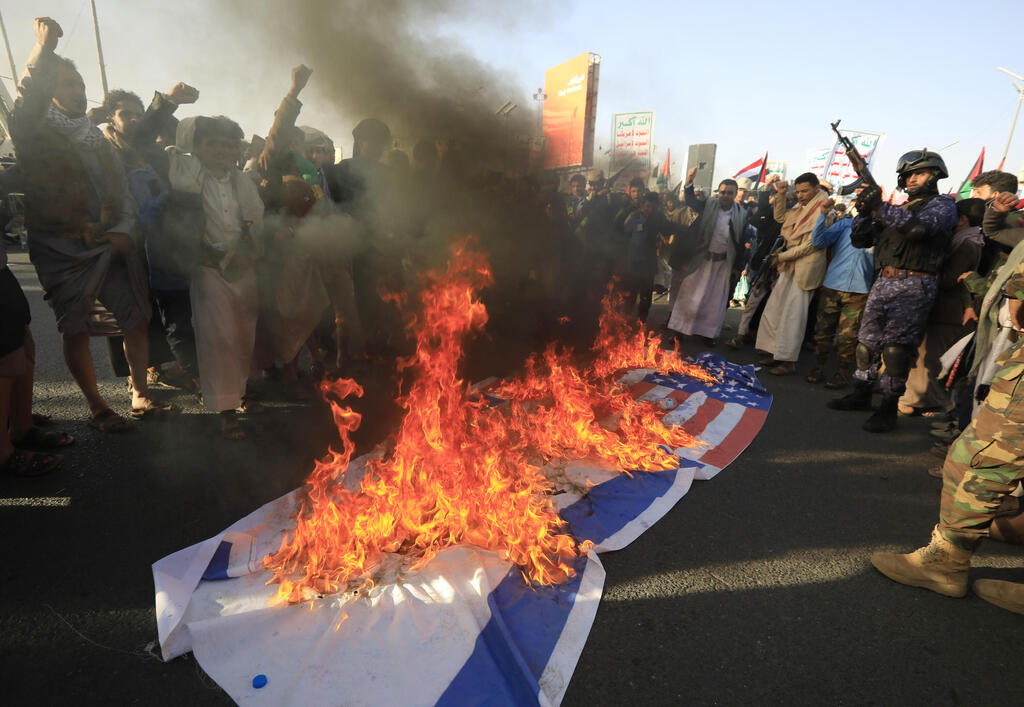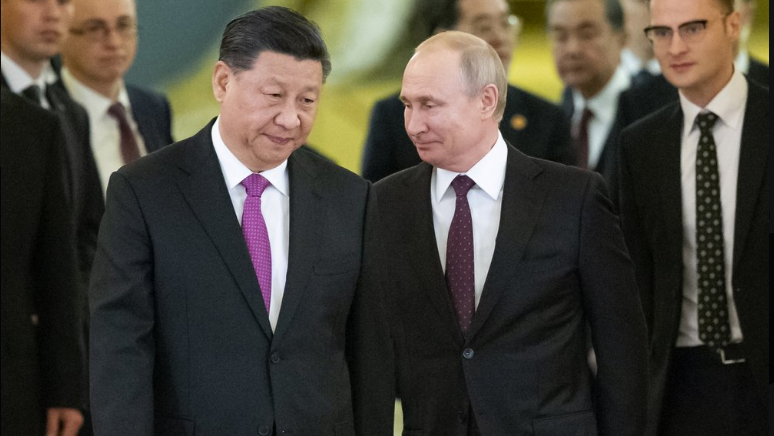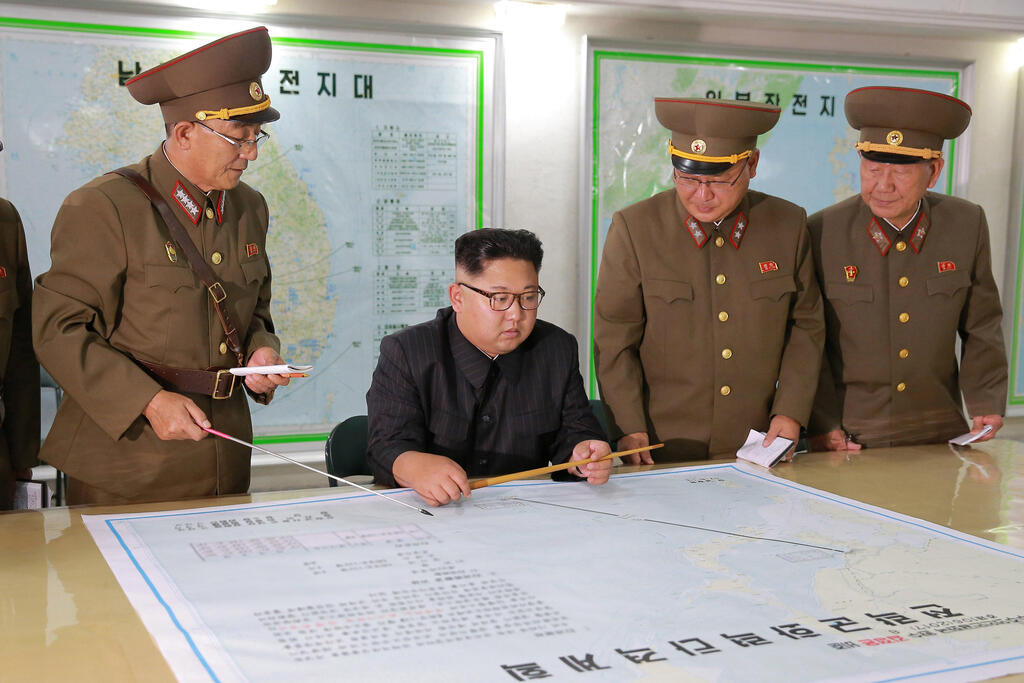Getting your Trinity Audio player ready...
Less than one full month into 2024, it is obvious that it is a crisis year not just for Israel, but for the entire West. To understand the depth of the crisis, it is necessary to look at the world more widely, well beyond Israel’s war against Hamas.
Read more:
Russia’s invasion of Ukraine, the world’s most dangerous war since the Second World War, will soon reach the 700-day mark. Even though Russia has breached every conceivable political and moral line, the West has failed to provide Ukraine with military assistance of sufficient quantity and quality to enable Ukraine to liberate the one-fifth of its territory occupied by Russia.
The Ukrainians have been promised just 61 F-16 fighters so far, none of which have yet arrived in the country. The commander of U.S. Air Forces Europe has acknowledged that even when they will finally arrive, they “will only help a little bit.” Left unsaid is the obvious fact that in such circumstances, Russia retains a significant chance of winning the war.
What this means is that NATO, frequently labeled the “world’s most successful military alliance”, has so far shown itself incapable of dealing effectively with the threat of Russia, the one threat which it was created to address.
In the Middle East, the situation is even more acute. The Houthis attacked commercial ships 27 times in the almost two months that have elapsed since 19 November, before America and Britain finally conducted a limited set of strikes. In parallel, various other terrorists supported by Iran have conducted 127 attacks on American forces in Iraq and Syria since 17 October.
Entirely predictably, the very constrained American response has led Iran, the sponsor of the Houthis, to become even more aggressive. It seized a tanker, the St Nikolas, off Oman. Simply put, American and Western deterrence has been imploding, in real time.
4 View gallery


Armed Houthi fighter walks along the beach with the Galaxy Leader cargo ship in the background, seized by the Houthis
(Photo: Ahya Arhab / EPA)
The root of the problem is the crisis of American democracy, or more specifically, the crisis of woeful, insipid leadership. As can be seen on the political forecasting website FiveThirtyEight, more than 56% of Americans have a negative view of President Biden, while almost 52% disapprove of former President Trump.
America is on the verge of being forced to elect one of the two least popular Presidential candidates in the country’s history. There is no historical precedent for this symbiotic relationship between two candidates, both of whom might well have been discarded as unelectable, if a more popular alternative had appeared on the scene.
That alternative might yet emerge, in the person of Republican candidate Nikki Haley, who is second behind Trump in a new poll of Iowa, where the party’s primary process is about to begin. However, the vote is now fewer than 300 days away, and the possibility of another Biden-Trump election is unpleasantly high.
Biden will need every vote he can get, and this will necessarily make his behavior, and that of his administration, particularly unscrupulous. This, and very little else, is why Secretary of State Antony Blinken asserts in Cairo that he has “a commitment from the Palestinian Authority to pursue meaningful reform,” on the very same day that the Authority celebrates the legal attack on Israel at the International Court of Justice in the Hague as a “historic event”.
Not just Iran, not just Russia, see the Biden administration’s miserable politicking, and American and Western weakness more broadly, as an extraordinary opportunity. North Korea’s Stalinist dictator Kim Jong-un speaks of a need to “prepare for war”, while exporting ballistic missiles to Russia, which have already been used in Ukraine.
The present crisis is by now so deep that it cannot be resolved even by the most astute diplomacy. The enemies of Western democracies have formed a reasonable expectation, grounded in experience, that they will not face a strong military response to aggression.
It is a sad but irreducible fact that the only way to break the sense of self-confidence on the part of aggressors is war. It is good that Blinken’s talk of “consequences for the Houthis’ actions” has been followed up by action, but what has so far happened will not be nearly enough. The U.S. has hit 60 Houthi targets, while a month ago Israel was attacking more than 450 targets in Gaza in one day. Unless America and Britain hit hundreds of additional Houthi targets, the effect of their counter-strike will soon dissipate.
4 View gallery


Houthis burn the American and Israeli flags in protest of the U.S. attack on Houthi targets
(Photo: Yahya Arhab / EPA)
Israel and the world at large should take careful note that only Britain, and no other country, has joined America in strikes against targets in Yemen. Britain itself sent only four Typhoon fighters, and is at pains to describe its involvement as “limited, proportionate.” American officials are publicly expressing uncertainty about whether the action taken will “merely degrade or also deter” future Houthi attacks. Therefore, so far nothing has fundamentally changed, and the crisis of Western security continues.
Regardless of whether Biden will or will not substantively deviate from his previous passivity, Israel has no choice. The only way to re-establish even a limited degree of deterrence, in the context of Western incapacity, is to finish off Hamas, and then strike Hezbollah with very great force. Continuing to avoid a large war at any cost, when the West has done precisely this for long enough to bring the world to the brink of disaster, is a road to oblivion for Israel.
- Dan Zamansky is a British-Israeli independent historian and author of The New World Crisis, a Substack analysing the problems of today. His manuscript of this article may be found at Substack




